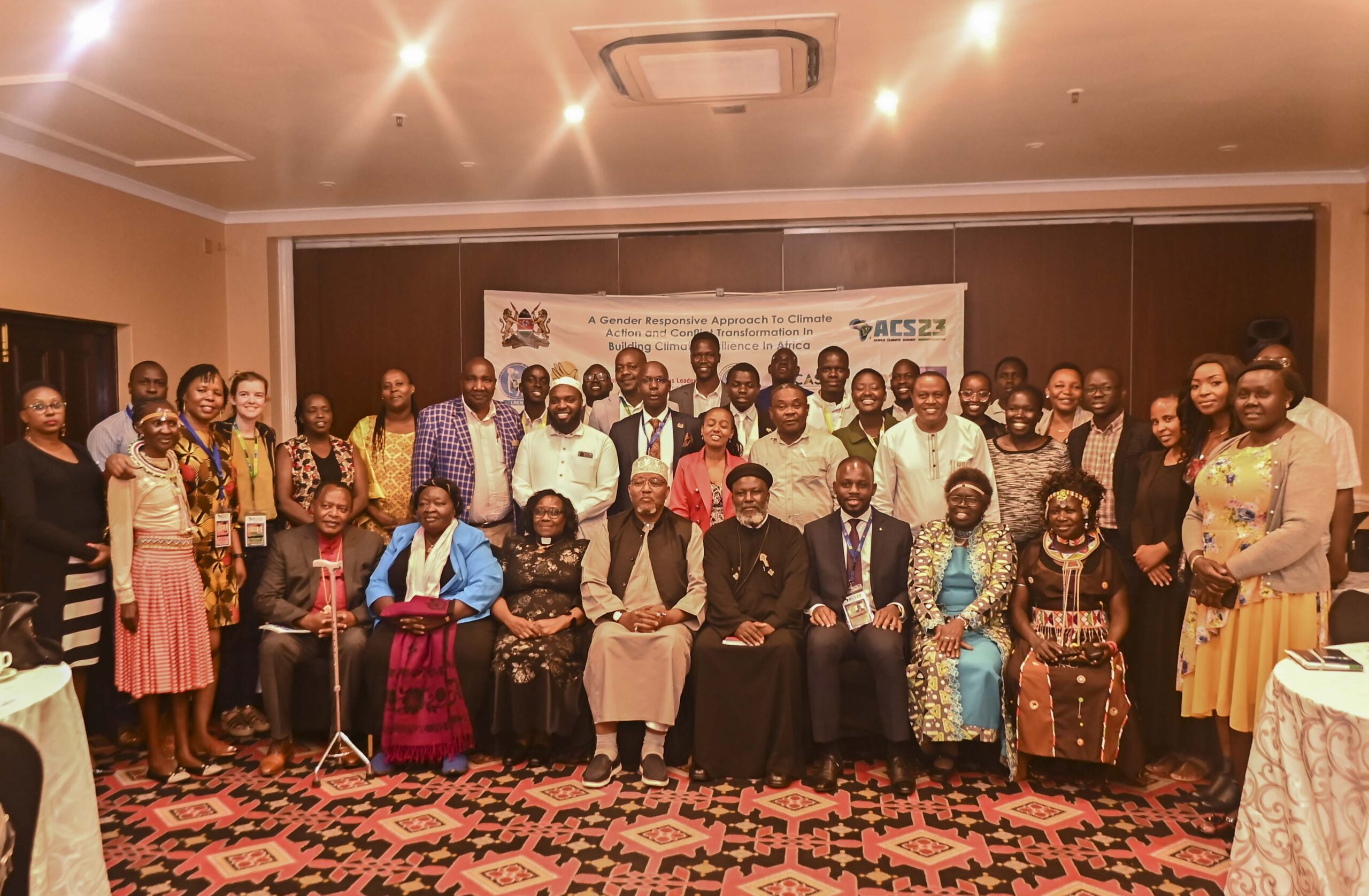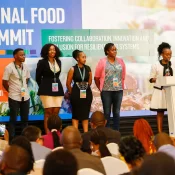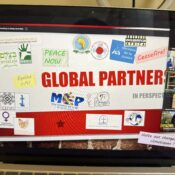
Africa Climate Summit Sidelines Event: Advancing a Gender-Responsive Approach to Climate Action and Conflict Transformation for Building Climate Resilience in Africa
The Africa Centre for Sustainable and Inclusive Development, in collaboration with International Alert, KAIROS, Lake Region Empowerment Network (LREN), the Inclusive Climate Change Adaptation for a Sustainable Africa (ICCASA), Bread for the World/Brot für die Welt and the African Council of Religious Leaders (ACRL), organized a hybrid auxiliary event during the Africa Climate Summit (ACS) and Africa Climate Week (ACW). This event focused on “Advancing a Gender-Responsive Approach to Climate Action and Conflict Transformation for Building Climate Resilience in Africa”. It provided an opportunity for climate stakeholders who were not accredited or physically present in Nairobi to participate in climate events and contribute their insights. These inputs informed discussions during a side event held at the Kenyatta International Convention Centre within the official ACS and ACW venue, by the same partners.
The meeting was attended by a diverse group of participants, including political leaders, religious leaders, representatives from NGOs and Civil Society Organizations, members of the Private Sector, and student representatives of various universities. Senator Moses Kajwang, Chairperson of the Kenya Parliamentary Caucus on Climate Change, graced the meeting and shared legislative perspectives on the intersection of climate security and gender. Ms. Emmy Auma, Country Director for Kenya and the Horn of Africa at International Alert emphasized the importance of integrating conflict sensitivity into all aspects of climate action, fostering effective collaborations, and promoting locally-led processes. Religious leaders highlighted the role of faith as a strategy for mitigating climate-induced conflicts and enhancing community climate resilience.
During the panel discussion and plenary sessions, participants collectively called for the following urgent actions:
1. Strengthening the adaptive capacity of marginalized gender groups to cope with climate shocks.
2. Developing a multisectoral framework to systematically reduce climate-induced conflicts.
3. Implementing inclusive, accountable, and conflict-sensitive climate financing models without delay.
4. Safeguarding and championing local and indigenous knowledge, while seamlessly incorporating it into the global climate science and policy apparatus, as a critical strategy for mitigating climate-induced conflicts.



